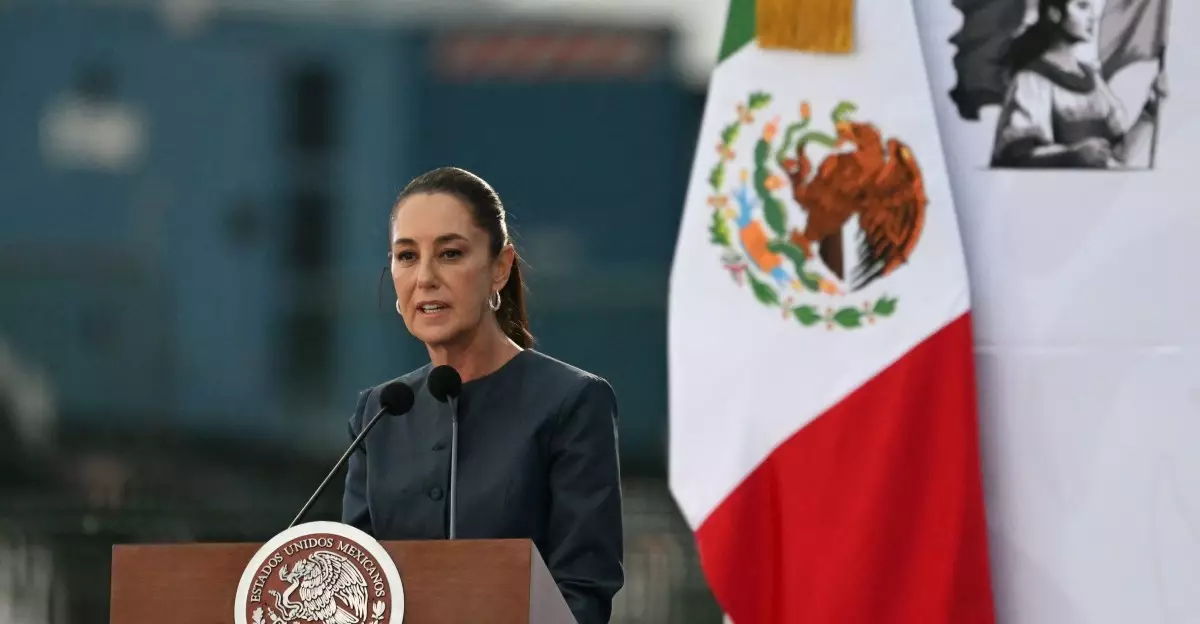In an unexpected twist on international relations, Mexican President Claudia Sheinbaum has stirred the pot by challenging the name change of the Gulf of Mexico to “Gulf of America” by Google Maps. This controversial move traces back to directives put forth by former President Donald Trump during his administration, which aimed to reinforce a sense of American ownership and dominion over various territorial names. Sheinbaum’s protest highlights not just a geographical labeling issue, but also touches upon deeper underlying themes of sovereignty, cultural identity, and the growing influence of tech giants on public perception.
The Significance of Naming
Name changes carry weight, as they are rarely just about the words themselves; they signify power dynamics, control, and cultural narratives. The Gulf of Mexico is a key geographical feature that holds historical, ecological, and economic importance for both Mexico and the United States. When Trump’s administration insisted on renaming it, it was more than a trivial adjustment in nomenclature; it was an assertion of dominion over a shared space. Sheinbaum’s message is clear: geographical identity cannot be reshuffled at will by one nation or company. This isn’t merely a matter of semantics; it reflects a deep-seated need for respect and recognition of boundaries and regions that do not belong exclusively to one nation.
Sheinbaum’s Action Plan
In her recent announcement, President Sheinbaum declared that Mexico is proceeding with legal action against Google in an effort to protect its territorial naming rights. This robust approach demonstrates a willingness to confront corporate influence directly and reflects a growing trend where governments assert their authority against multinational corporations. The lawsuit comes as a response to prior negotiations that saw little success, including attempts to persuade Google to revert to the original name in their maps. This legal battle is not just a fight over words; it is a declaration that Mexico asserts its rights in the digital realm, where information is curated and presented by powerful tech entities.
The Flawed Nature of Corporate Compliance
Google’s compliance with Trump’s directive, particularly when compared to other tech firms like MapQuest that have resisted the change, raises serious questions about corporate ethics and responsibility. Is Big Tech merely a sales-friendly entity that bends to the whims of political power? By accommodating Trump’s request, Google arguably chooses to participate in a political narrative that could alienate a substantial user base and damage its reputation in the eyes of those who value international cooperation and respect for different cultures.
Sheinbaum’s push-back resonates with a broader ethos of prioritizing collaborative global citizenship over blind allegiance to a corporation’s branding decisions influenced by a partisan agenda. By standing her ground, she invites other international leaders to reconsider their positions on similar issues, thereby sowing the seeds for a more significant geopolitical conversation about sovereignty and digital representation.
The Role of the Public and Media
One key aspect that must not be overlooked is the role of public opinion and media in this unfolding saga. Media outlets, like The Associated Press which faced restrictions for refusing to use the new name, underline the pivotal nature of journalism in maintaining a balanced narrative. The willingness of journalists to challenge authoritative directives is critical in preserving journalistic integrity and fostering a culture of questioning that is vital in democratic societies. Ultimately, Sheinbaum’s bold stance could galvanize public sentiment both within Mexico and among international observers against the misuse of naming conventions for political leverage.
By reclaiming this narrative, Sheinbaum not only protects her nation’s territory but also champions a world where corporate giants remain accountable to the societies they serve, potentially redefining how governments interact with technology in the age of rapidly evolving information landscapes.

